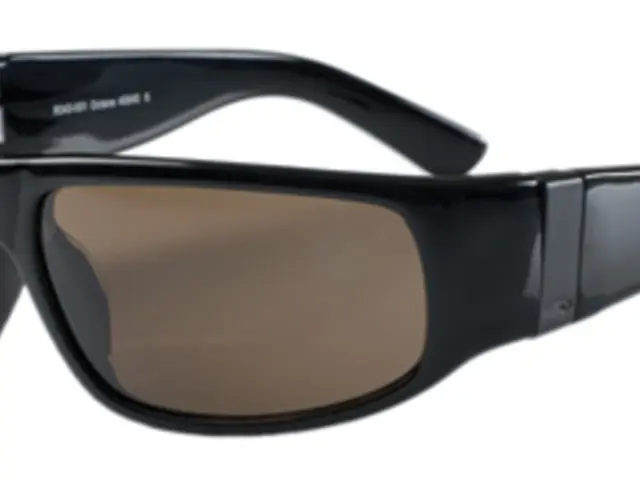Half of Tomsk's parks have been treated for ticks.
FRESH TAKE:
Tomsk's Parks Undergo Anti-Tick Treatment Amid Weather Influence
The weather plays a crucial role in Tomsk's anti-tick treatments in city parks. As of now, over half of the municipal recreational zones have been treated, including popular spots like Novosoborskaya Plaza and territories surrounding White and Mavlyukyevo Lakes, plus cemeteries. This information was shared by Tomsk's city hall press service on Thursday.
Earlier reports indicated that the first tick infestations of 2025 were recorded on January 10 in Woroniно, a town near Tomsk. On March 20, health officials announced the start of the tick season. Tomsk's anti-tick campaign started in mid-April. Each year, specialists treat approximately 800 hectares around the city.
According to Natalia Kineva, Tomsk's deputy head of the department of road construction and urban development, the anti-tick plan is flexible and subject to adjustments based on entomological research conducted on each specific site, as well as weather conditions.
"We have a flexible plan, which we adjust based on research conducted by our entomologists on each specific site. Weather conditions also play a part—we require dry and windless conditions for the treatment," Kineva was quoted saying.
1,700 Tomsk Area Residents Bitten by Ticks Since Early May
In addition to treating the city's cemeteries, the anti-tick effort affects local residents as well. Since early May, over 1,700 people living in Tomsk Oblast have been bitten by ticks.
According to the preliminary plan, the following parks will be treated: on May 19, Michael's Grove, May 20, Beresovaya Grove in Kaštak and Solnecno.
Here's a look at how weather could potentially affect these treatments. Keep in mind this is a general overview, not specific to Tomsk:
- Rainfall and Humidity: Heavy rain can wash away chemical treatments, reducing their efficacy. High humidity may encourage increased tick activity.- Temperature: Extreme temperatures can affect tick viability and treatment effectiveness. In colder climates, such as Tomsk's, ticks might be less active during winter months.- Seasonal Changes: Seasonal patterns in regions like Tomsk may necessitate adjustments to treatment schedules, with more frequent applications during warmer months when ticks are more active.
For Tomsk-specific details, it's best to consult local authorities or organizations specializing in park maintenance and public health.
- Science plays a crucial role in understanding the behavior of ticks and devising effective treatments for tick-related health issues, a key aspect of workplace-wellness.
- Various medical conditions, including chronic diseases like chronic kidney disease, COPD, type-2 diabetes, and cancers, can be exacerbated by tick bites.
- Respiratory conditions such as COPD could potentially be triggered by tick bites due to the allergic response they cause.
- Digestive health issues might be linked to tick-borne diseases, necessitating the need for regular testing and therapies-and-treatments.
- Eye-health could be affected by certain tick-borne diseases, with symptoms ranging from conjunctivitis to more serious complications.
- Hearing problems may not be directly linked to tick bites, but the stress and anxiety resulting from a tick infestation could potentially exacerbate existing hearing issues.
- Health-and-wellness initiatives in workplaces can help educate employees about the risks associated with tick bites and precautions to take.
- Regular fitness-and-exercise, coupled with proper nutrition, can boost the immune system and help the body better fight off tick-borne diseases.
- Alzheimers disease, autoimmune disorders, and neurological disorders like multiple sclerosis and migraines may have indirect links to tick-borne diseases.
- Climate change may be altering the geographical distribution and activity patterns of tick species, posing new health risks for populations.
- The renewable-energy industry can invest in research to develop eco-friendly tick-control strategies, reducing the reliance on harmful chemicals.
- In the manufacturing industry, safety protocols should include guidelines for handling materials that may attract ticks and other pests.
- Mental-health issues, such as anxiety and stress, can be triggered or exacerbated by the fear of tick infestations and the associated health risks.
- Skin-care products can help prevent tick bites by repelling the insects, offering another layer of protection against tick-borne diseases.
- The health sector can benefit from advances in environmental-science, which can provide insights into the habits of ticks and the most effective strategies for their control.
- Finance, energy, and real-estate industries can contribute to tick management by supporting research and development of sustainable solutions.
- Skin-conditions like psoriasis could potentially be aggravated by tick bites, causing additional discomfort and requiring specialized treatments.
- Space-and-astronomy research may seem unrelated to ticks, but understanding the ecological impact of space exploration can help us predict potential changes in tick populations.
- The oil-and-gas industry should be aware of the potential health risks associated with working in tick-prone environments, providing protective gear and educating workers on prevention measures.
- The retail industry can promote tick-prevention products, such as tick repellents and protective clothing, to consumers.
- Public-transit systems should prioritize cleanliness and pest control to decrease the risk of tick bites for passengers.
- Entrepreneurship and small-business owners should be mindful of the health risks posed by ticks when establishing outdoor seating areas or event spaces.
- Investing in tick-control measures can lead to long-term savings by reducing the number of tick-borne disease cases and associated healthcare costs.
- Aviation companies operating in tick-prone regions should implement safety protocols and education programs for their staff regarding tick-borne disease risks.
- The banking-and-insurance sector can offer products specifically designed to cover tick-borne disease treatments, providing financial protection for affected individuals.
- The fintech industry can collaborate with healthcare providers to develop digital solutions for tick-borne disease diagnosis, monitoring, and treatment.








